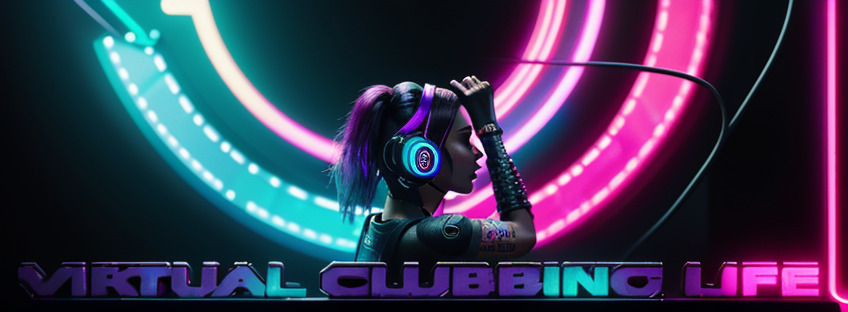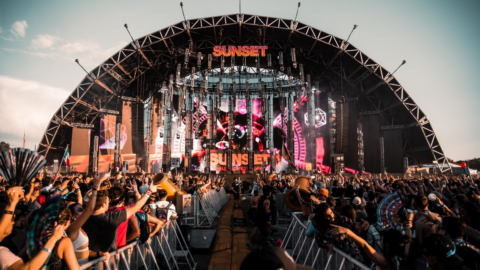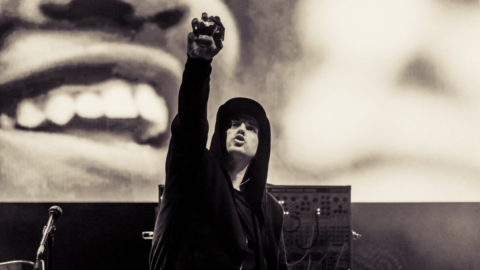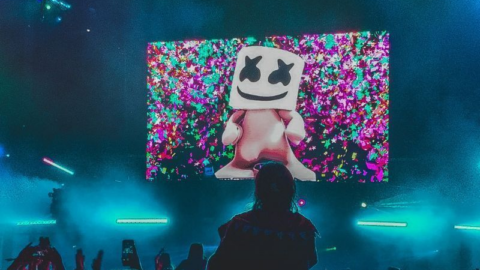Search
Royal, one of the biggest names in the burgeoning music NFT space, has finally launched its long-promised marketplace for music royalty rights.
Started by electronic musician and entrepreneur Justin “3LAU” Blau and Opendoor founder JD Ross, Royal raised $16 million in its seed funding round in August 2021. Last November, the Web3 music startup raised another $55 million in funding from Andreessen Horowitz, Coinbase Ventures, and Paradigm, along with popular musicians like Nas and The Chainsmokers.
With that capital, Blau tells Decrypt that Royal has spent the past year developing its browser-based NFT marketplace, where users can now discover new artists, trade Royal NFTs, and see detailed statistics on each asset.
The Royal marketplace pulls bid data and purchase history from top overall NFT marketplace, OpenSea, plus its dashboard aggregates streaming data from Spotify, Apple Music, Amazon Prime Music, Tidal, and SoundCloud Premium.
Since it began releasing NFTs, Royal has dropped music with heavy-hitters like Diplo, Nas, The Chainsmokers, Vérité, Elephante, and 3LAU himself. As a part of today's marketplace launch, Royal is releasing a new drop with electronic musicians Bingo Players and Zookëper.
Each Royal NFT offers buyers a share of royalty payments as artists’ songs are played on streaming services. Earlier this month, Royal announced that its partnered artists had paid out over $100,000 in royalties across more than 9,200 NFT collectors since launch.
After today’s payout, artists have shared more than $100k in streaming royalties with collectors through Royal. pic.twitter.com/NRuc86iW4y
— royal (@join_royal) November 4, 2022
This milestone shows that collector royalties, while currently modest, can be a real incentive for fans to buy NFTs from their favorite musicians. The percentage varies by artist and/or song, but it allows fans to invest in artists while betting on their future success.
While holders won’t make back what they paid for each Royal NFT right away, there are potential benefits for long-term collectors depending on which artist(s) they support. Royal NFTs aren’t just about music rights and royalties—some NFTs are eligible for bonus real-world perks, like access to meet-and-greets or listening parties.
Royal’s marketplace launches into an NFT space that already has plenty of established platforms for buying and selling digital assets, although many are broadly designed and not focused specifically on music. There’s also lots of Web3 music platforms competing for users’ attention, like Audius and OurSong (Blau is an advisor to Audius).
Even with so many other NFT platforms in the space, Blau said that there’s a need for a dedicated platform that can onboard new users, as Royal isn’t targeting Web3 natives.
“The reason why we built our own is because we felt that a lot of music fans don't know how to set up a wallet,” Blau told Decrypt. “We basically set up a way for everybody to pay and trade in dollars. So if you've never used crypto before, and you sign up for Royal, we generate a wallet for you. You can deposit USDC into that wallet from your bank account. You never have to see Ethereum if you don't want to.”
Royal’s marketplace leverages Ethereum sidechain Polygon's network for its NFT assets, but doesn’t see self-custody crypto wallets or handling ETH as a required part of the Web3 experience. Royal simply wants to leverage the concept of blockchain-verifiable ownership while making it mainstream.
“We needed to build a little bit better of a bridge,” Blau said of Royal’s decision to deploy its own marketplace.
Royal’s goal for the marketplace is to be extremely user-friendly and keep its crypto elements minimal. This strategy may prove successful: Audius recently hit 7.5 million users in part because, as CEO Roneil Rumburg previously told Decrypt, “the average Audius user is not even aware the crypto is there.”
“We're not necessarily building it for the existing users of crypto,” Blau said of Royal’s marketplace. “We're building it for all of the new ones.”
Royal’s music royalties for collectors aren’t quite the same as the concept of creator royalties in the broader world of NFTs.
Royalties have become a controversial topic lately as marketplaces like OpenSea and Magic Eden debate whether to enforce creator royalties—a fee, typically set from 5% to 10% of the sale price, paid by secondary market sellers. Many platforms have made them optional, although OpenSea opted to keep them following creator backlash.
“I never really understood why we call them royalties in the first place,” Blau told Decrypt. “Royalties kind of imply that something is consumed—that there's some sort of right that is getting paid out on—and what we call secondary royalties are really secondary commissions.”
Royal’s payouts are royalties in the traditional sense of the word: rights owners receive a percentage of profits when a piece of content is consumed. In Royal’s case, those rights owners are the NFT owners. In the rest of the NFT world, royalties could perhaps more accurately be renamed creator fees or, as Blau suggested, “secondary commissions.”
“My general opinion is the idea of secondary commissions into perpetuity has product market fit, insofar as people get really excited about it,” he said. “Its enforceability unfortunately requires a degree of centralization.”
A main reason that Blau started Royal was to disrupt the traditional music industry and allow musicians to earn a larger share of the total revenue pie, where they currently take home roughly 12%.
“At Royal, we obviously believe that creators should get paid forever,” he explained. “We also are sensitive to general fee structures. Like, 10% every time something trades is just kind of irrational. But there's some in-between that we think is fair.”
Royal said that it is covering its platform fees and artist fees on its marketplace until 2023, while its secondary commissions fee for artists will be 2.5%.
So what’s next for the Royal team? Blau told Decrypt that a mobile app version of the marketplace is in the works. “It might be soon,” he said of an iOS app.
But Blau isn’t worried about Apple’s strict NFT policies or its 30% in-app purchase fees for any NFTs sold. Apple’s policies have divided NFT advocates. Some see those fees as incompatible with Web3 business models, while others say that the mainstream audience is necessary, and Web3 builders will simply need to get more creative with how they monetize products.
“We have a direct contact with Apple that we're working with on making sure that we assess the correct parameters for launching,” Blau said. “Those fees won’t get in the way of our vision.”
Editor's note: This story was updated after publication to clarify how the NFT royalties model works.













